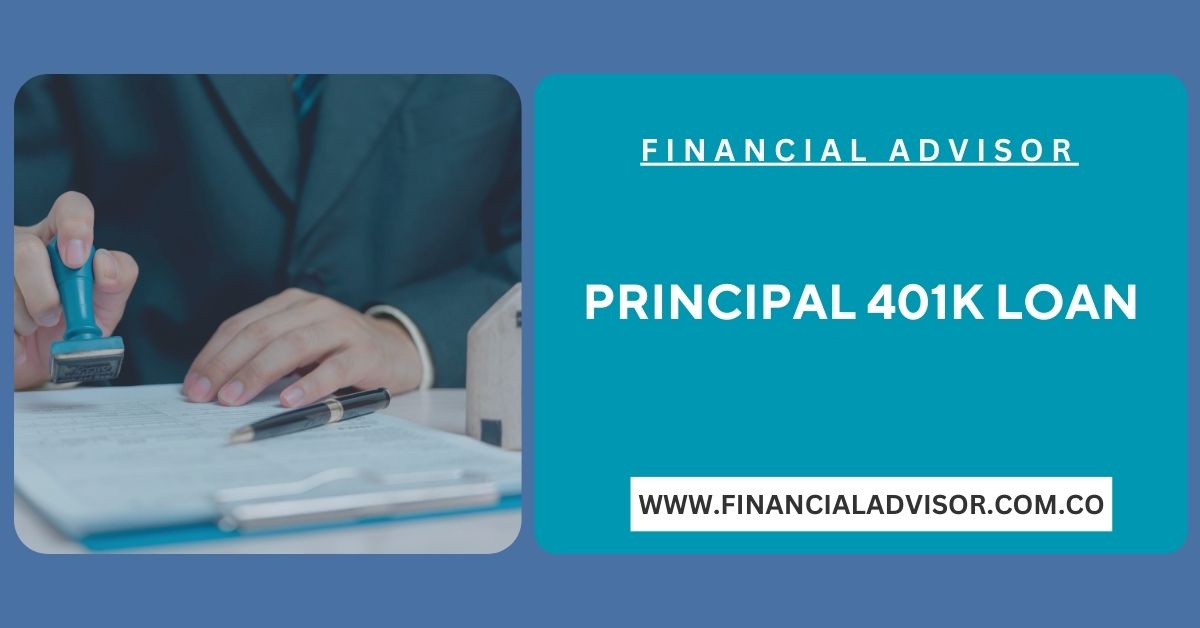Principal 401k Loan: A Detailed Guide to 401(k) Loans with Principal
The 401(k):A 401(k) retirement plan is one of the most popular savings vehicles available. But sometimes, the unexpected expenses of life can involve needing funds urgently. A 401(k) loan can help in such situations as a short-term financial solution. Among those providers is Principal Financial Group, a well-known retirement and investment management company. In this article, we will cover: what is a Principal 401(k) loan, how do they work, benefits of a Principal 401(k) loan, and risks potentially involved.
What Is a Principal 401(k) Loan?
A 401(k) loan is a way for 401(k) plan participants to borrow under an agreement with their retirement savings account and to pay back the loan in a specified time. A Principal 401(k) loan is a loan that is taken from a 401(k) account held with Principal Financial Group. The company lists guidelines on loan eligibility, repayment terms, interest rates, and restrictions.
How Does a 401(k) Loan With Principal Work?
- Eligibility: Not all 401(k) plans include loans; it depends on employers’ plans. Eligibility will need to be determined by checking with your HR department or Principal Financial Group.
- Loan Amount: The IRS caps 401(k) loans at up to $50,000 or 50% of the vested balance in the account, whichever is less.
- Repayment Terms: A Principal 401(k) loan must generally be repaid in five years through payroll deductions. If the loan is for a primary residence purchase, a longer term might be allowed, however.
- Interest Rates: A 401(k) loan’s interest rate is typically pegged to the prime rate with a small percentage added. Like the mortgage, every month the borrower pays that interest, it goes back into their 401(k) account.
- Loan and Investment Limits: Borrowers can typically only borrow bigger amounts and have to follow certain rules regarding their investments.
Advantages of a Principal 401(k) Loan
- Immediate Availability of Cash: A 401(k) loan does not go through credit approval like other loans, so it can be secured faster.
- Interest Generally Lower: The interest on the loan is paid back into the borrower’s retirement account instead of to a bank or lender.
- No Effect on Credit Score: Because a 401(k) loan isn’t reported to credit bureaus, borrowing doesn’t impact someone’s credit score.
- Flexible Repayment Options: Payments are usually deducted automatically from the borrower's paycheck, which helps ensure on-time payments.
Risks and Drawbacks
- Opportunity Cost: By taking money out of a 401(k), an individual also forgoes the potential investment growth those funds could have generated over time, which might hinder their long-term retirement savings.
- Tax and penalty risks: If the loan isn’t paid back, it may be treated as an early withdrawal, exposing you to income taxes plus a 10% penalty if you’re under age 59½.
- Job Loss Complexities: For borrowers who switch jobs, the loan amount must often be paid back in as little as 60 days, or they can be assessed steep penalties.
Conclusion
For those in need of short-term relief, a Principal 401(k) loan can be a suitable choice. But borrowers need to weigh the trade-offs to their long-term retirement savings if they take out a loan. A financial advisor may be able to help explain whether a 401(k) loan is a good deal for your particular financial situation.

